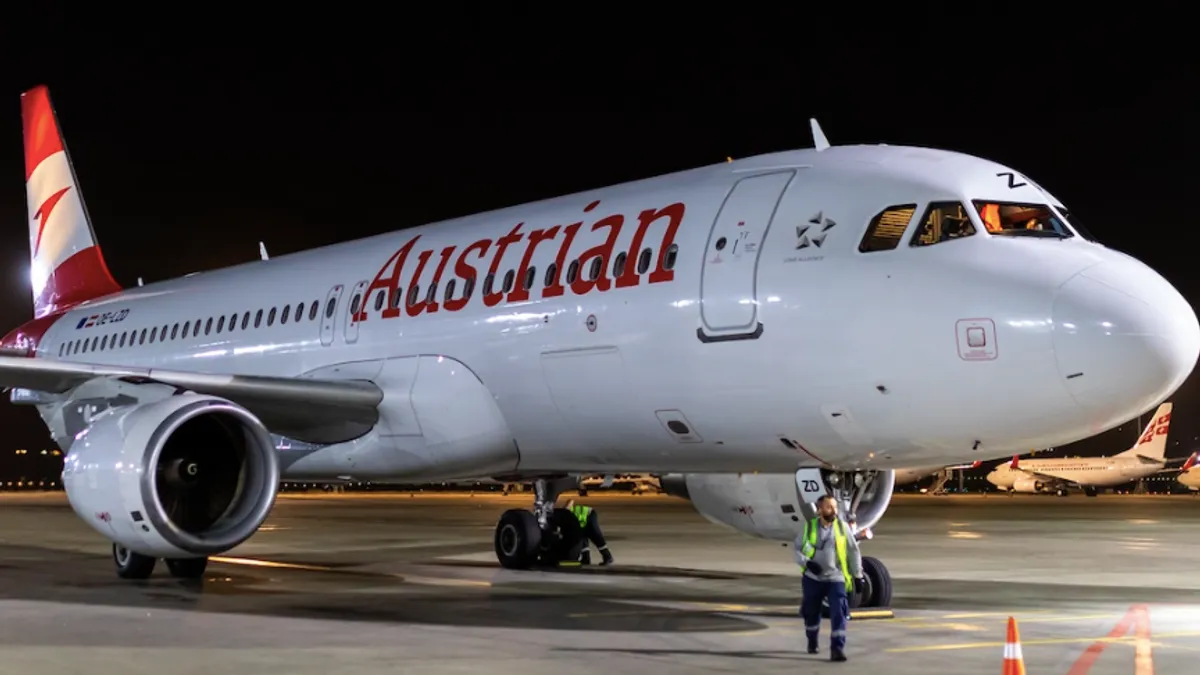The trick that airlines use to "bump" passengers: they "forget" to inform travellers that flights are overbooked

Nearly all airlines sell tickets over capacity: overbooking is old business.
The main reason given by airlines is that some passengers don't make it to boarding ("no-shows"), for various reasons.
The overbooking trick - airlines are non-transparent with passengers, to whom they "forget" to disclose the risk that they may be left stranded.
Regulation in the US since 1978
Overbooking by airlines is an old business. As old as back in the 1940s.
As they have expanded their business, US airlines have also faced the problem of booked but unoccupied seats. These were counted as losses.
To minimise them, airline managers adopted overbooking as a business strategy.
By 1950, deliberate overselling of tickets had become widespread. So did passenger complaints.
For years, airlines claimed "human error", denying that overbooking was deliberate.
The first regulation of overbooking took place in the US in 1978. The Civil Aeronautics Board (CAB) then ordered airlines to pay additional compensation of up to $400 to victims of overbooking tactics.
20 years of EU regulation
Overbooking regulation has existed in the European Union since 2004.
In 2001, an EU study noted that several European airlines "have got into the habit of including the no-show issue in their ticket sales planning".
According to EU statistics, more than 250,000 passengers in Europe were stranded at check-in desks each year.
Some of the biggest airlines, such as British Airways, Lufthansa and Air France, were selling more seats on flights to compensate for possible no-shows.
The EU-wide regulation provoked major protests from major industry organisations.
The International Air Transport Association (IATA), the European Regions Airlines Association, the International Air Carriers Association and the Association of European Airlines argued that the proposed new rules would give passengers "far more money than they paid for their tickets".
Until 2004, compensation for passengers affected by overbooking was €150 to €300.
EU regulation EC 261 stipulates that they should be €250 to €600.
Volunteers not to embark
According to the European regulation EC 261/2004, in case of overbooking, before denying passengers boarding, the airline must first look for volunteers to give up their reservation.
Volunteers can also negotiate with the airline for benefits other than those already agreed and compulsory (reimbursement of the value of the ticket or insurance for the next flight and financial compensation).
These additional benefits are not laid down in the regulations and are left to negotiation between the volunteer passenger and the airline.
If there are not enough volunteers, the airline that has sold more tickets has to deny more passengers the right to board.
Who is left out
The selection criteria are not regulated, are not transparent and are a matter of airline policy.
The most common criterion is check-in time: late arrivals are the first to be targeted.
However, the fare paid by a passenger is also important: a person who bought a more expensive ticket at the last minute will be more likely to get on the plane than someone with an earlier, cheaper ticket.
Those most unlikely to be left behind are older passengers and frequent travellers such as business people.
Those who are left stranded against their will are entitled to a later flight or a refund of the cost of their reservation.
In addition, they are also entitled to reimbursement of expenses (accommodation, transfer and meals) until the next potential flight, as well as compensation of €250 to €600.
To obtain compensation, they must request a denied boarding form.
Overbooking increases airline revenue
The biggest airlines, with many destinations and a fleet of many planes, manage to make several million euros more each year thanks to overbooking.
However, according to IATA, maintaining this practice is primarily beneficial to passengers: overbooking, if managed "correctly", allows airlines to offer competitively priced tickets and allows more passengers to book their flights.
Correct management is all about the algorithm that companies end up creating based on statistics to detect how many percent of passengers will not make it to boarding.
Algorithms take into account, among other things, departure and destination airports, weather conditions, speed of security checks, cancellations and delays of previous flights.
According to IATA, eliminating overbooking would lead to stricter time limits for ticketing.
It would also increase charges for "No-Show" passengers and tighten restrictions on refund rates for cancelled trips.
Air transport, the most complaints
In 2023, the European Consumer Centre recovered over €350,000 for consumers, 32% more than the previous year.
ECC Romania resolved around 6,100 complaints from Romanian consumers and 230 complaints from consumers in other EU Member States.
Out of the five areas covered, transport, especially air transport, accounted for the most: 41% of the complaints.
Compared to 2022, the share of complaints related to air transport services (flight cancellations or delays) continued to increase, remaining at the top of the list of areas generating consumer complaints.
Wizz Air, "queen" of fines
In 2023, Wizz Air received 258 complaints. These concerned flight cancellations and denied boarding due to overbooking.
Although company representatives said they don't overbook over the holidays, just earlier this year, several passengers were denied boarding due to oversold tickets.
They had bought their tickets in advance to return from Sibiu (Romania) to the UK and had checked in 24 hours before their flight.
Two months later, another case was well publicised: seven passengers waiting in line for a Wizz Air flight from Bucharest to Milan were not allowed to board.
The airline claimed that they "presented themselves at the boarding gate after boarding was closed".
According to passengers left on the ground, they were actually among the last in the queue to avoid being crowded.
After investigating Wizz Air's cancelled flights in 2023, the Romanian National Authority for Consumer Protection (ANPC) fined the company 60,000 lei.
Of the complaints received by the airline, none had been resolved by the time the ANPC launched its investigation.
According to company representatives, "Overbooking is perfectly normal for airlines".
The overbooking trick - airlines are non-transparent
European law, however, while not banning the practice of overbooking, insists that passengers must know from the outset that they may be denied boarding.
According to claimflights.com, "The first condition (for overbooking to be legal - ed.) is that, at the time of booking (or in the booking confirmation), the airline informs you that your seat is at risk of being overbooked.".
The very EU regulation mentioned above states that "Passengers should be fully informed (by airlines) of their rights in the event of denied boarding and of cancellation or long delay of flights, so that they can effectively exercise their rights".
The same regulation (Article 14(1)) states that "The air carrier shall ensure that a legible notice is displayed in the passenger check-in area, consisting of the following text printed in clear and visible characters: ".
Obviously, as today check-in can also be done online, passengers must be informed via the booking confirmation email about overbooking on a particular flight.
Which a lot of airlines don't do.
























